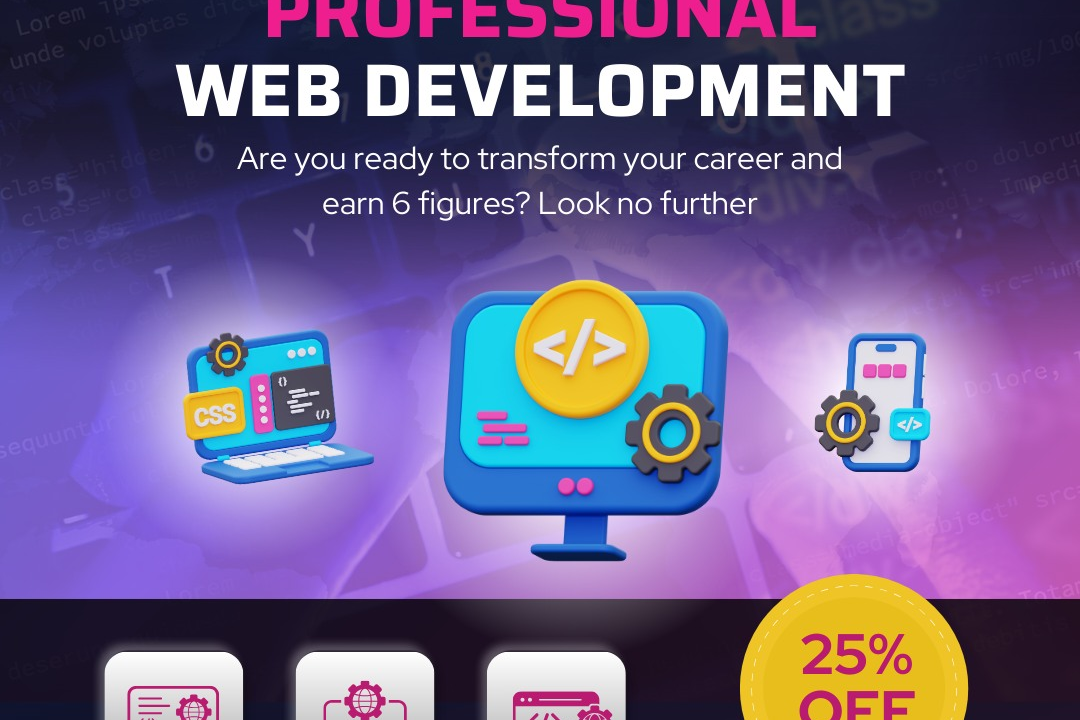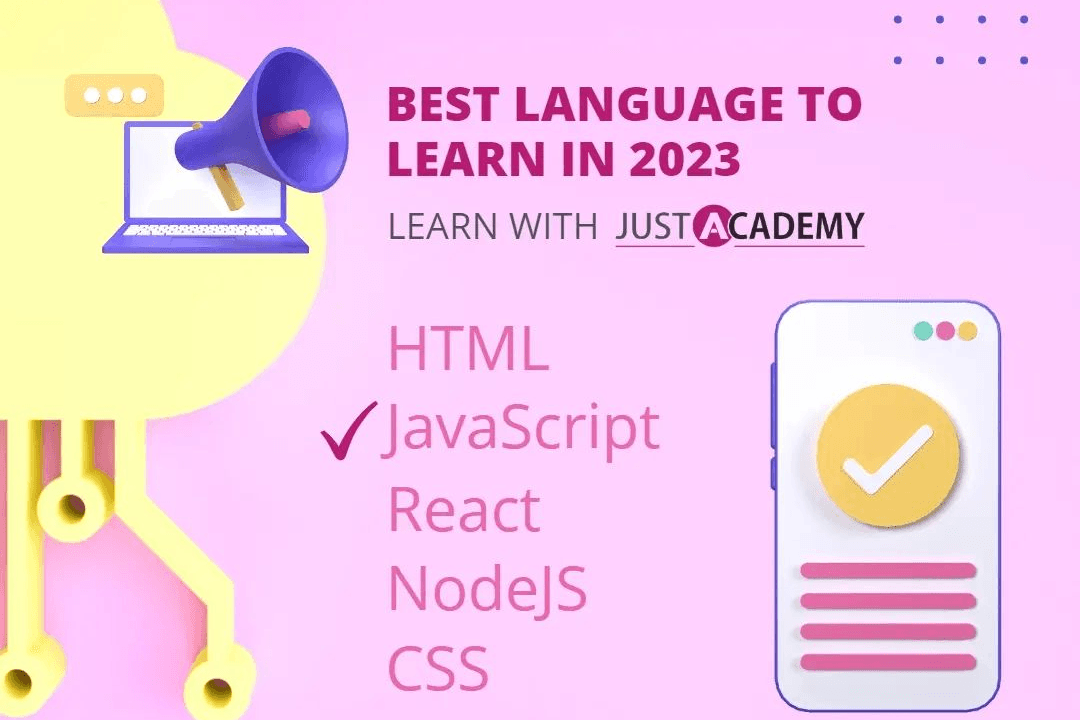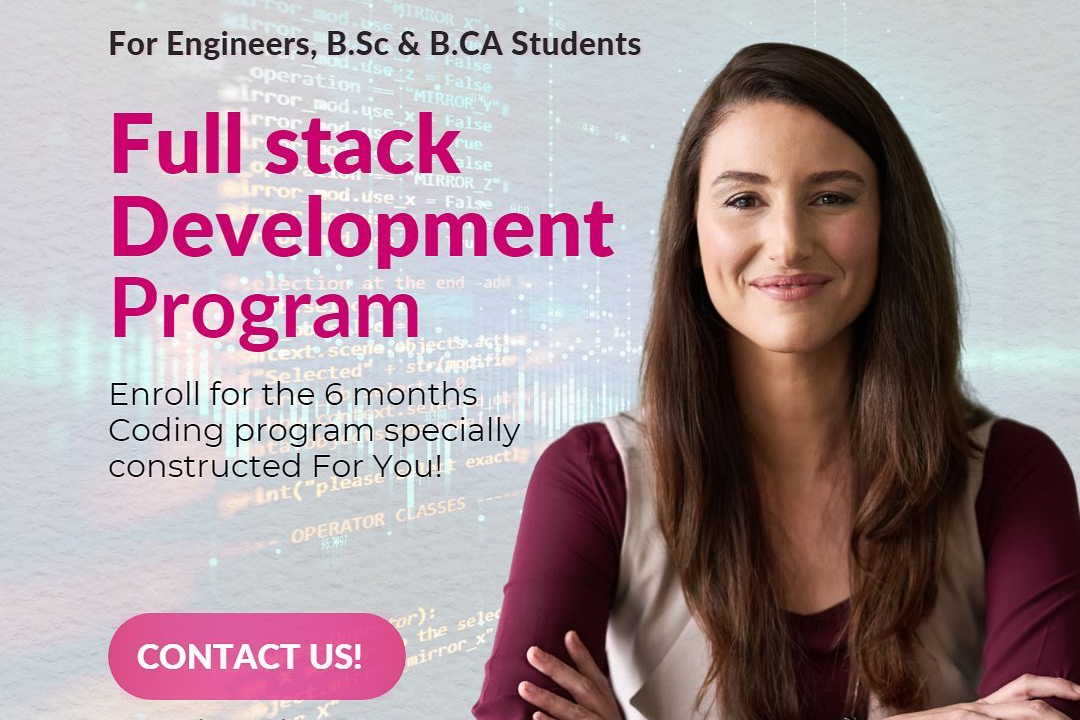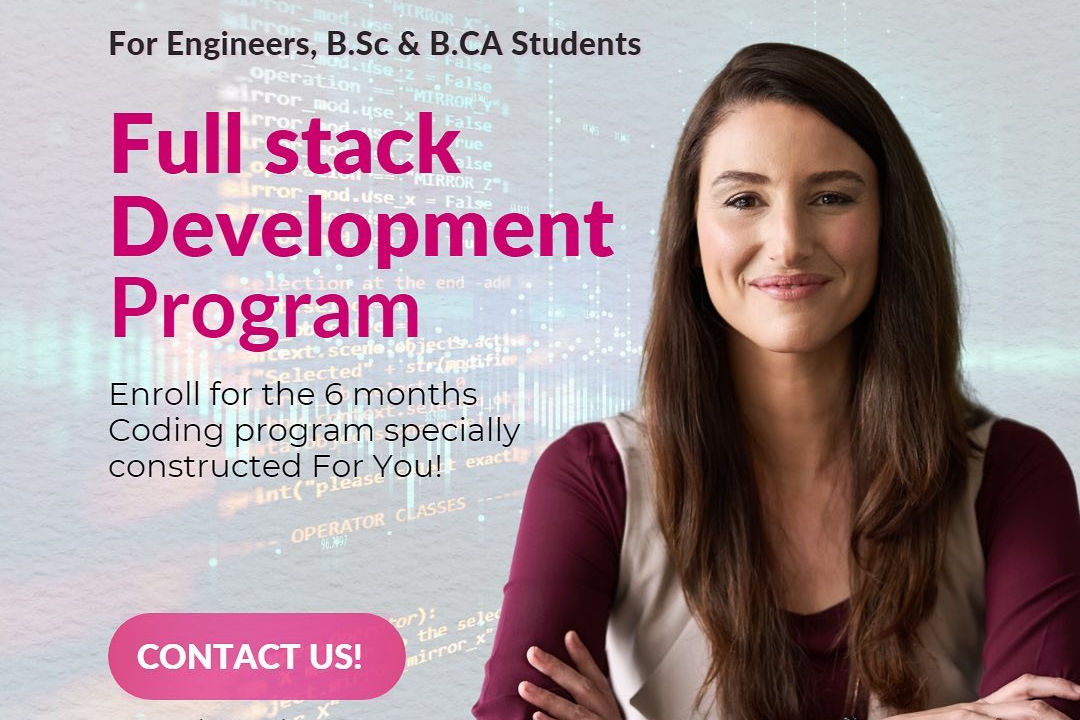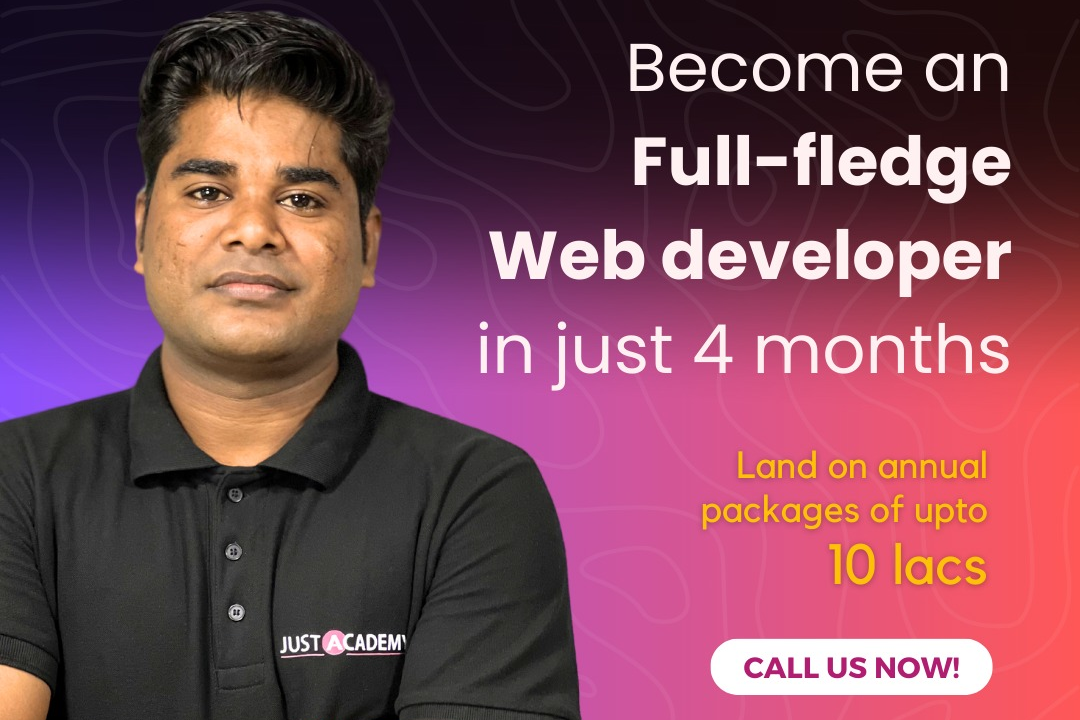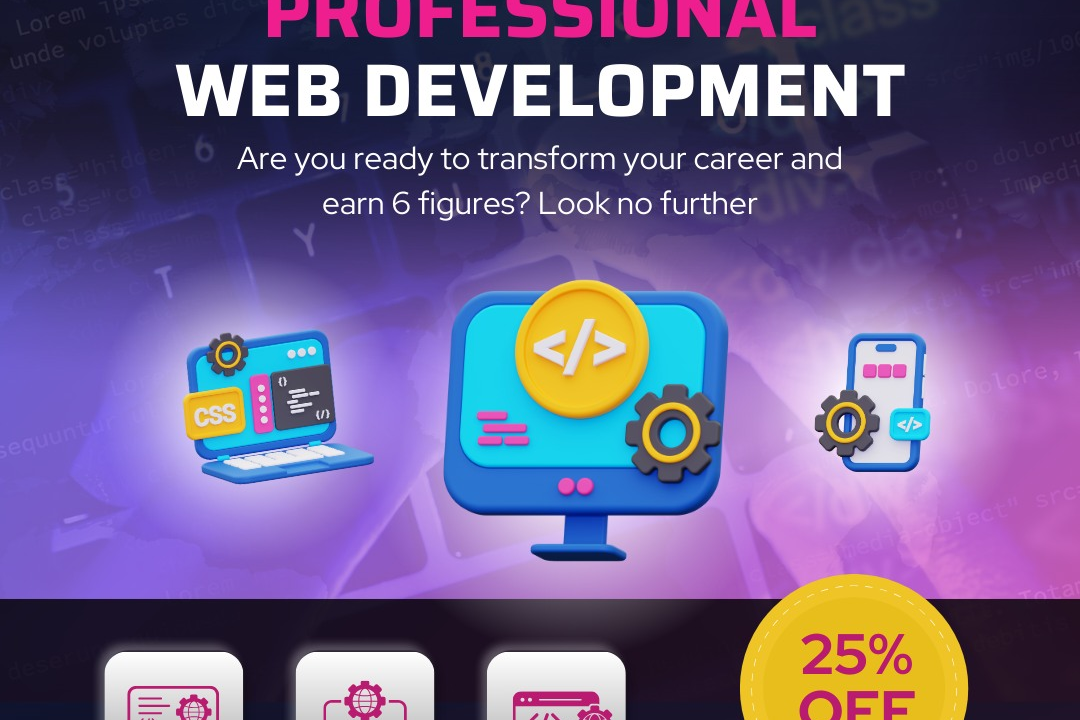dynamic PHP programming
Dynamic PHP programming is a method of web development that allows for the generation of interactive
dynamic PHP programming
Dynamic PHP programming is invaluable for creating interactive and responsive web applications. By using PHP to generate content on-the-fly, developers can build sites that adapt to user input and preferences, leading to a more personalized experience. This capability is essential for applications like e-commerce platforms, social networks, and content management systems, where content updates frequently based on user interaction or database changes. Additionally, the ability to integrate with various databases allows for efficient data management and retrieval, making PHP a powerful choice for developers aiming to deliver rich, dynamic web experiences.
To Download Our Brochure: https://www.justacademy.co/download-brochure-for-free
Message us for more information: +91 9987184296
Dynamic PHP programming is invaluable for creating interactive and responsive web applications. By using PHP to generate content on the fly, developers can build sites that adapt to user input and preferences, leading to a more personalized experience. This capability is essential for applications like e commerce platforms, social networks, and content management systems, where content updates frequently based on user interaction or database changes. Additionally, the ability to integrate with various databases allows for efficient data management and retrieval, making PHP a powerful choice for developers aiming to deliver rich, dynamic web experiences.
Course Overview
The “Dynamic PHP Programming” course at JustAcademy is designed to equip learners with essential skills to create interactive web applications using PHP. This comprehensive program covers key concepts such as handling form data, session management, and database interactions, enabling students to generate dynamic content in real-time. Participants will engage in hands-on projects that provide practical experience in building efficient and robust applications. By the end of the course, learners will have a solid understanding of PHP's capabilities and best practices for developing dynamic websites, making them well-prepared for careers in web development.
Course Description
The “Dynamic PHP Programming” course at JustAcademy offers an immersive learning experience that empowers students to master PHP for web development. This course covers essential topics such as server-side scripting, database connectivity, and session management, enabling learners to create interactive and data-driven web applications. With a focus on real-time projects, students will gain hands-on experience in developing robust, dynamic websites that address real-world challenges. By the end of the course, participants will possess a strong foundation in PHP programming, preparing them for a successful career in web development and beyond.
Key Features
1 - Comprehensive Tool Coverage: Provides hands-on training with a range of industry-standard testing tools, including Selenium, JIRA, LoadRunner, and TestRail.
2) Practical Exercises: Features real-world exercises and case studies to apply tools in various testing scenarios.
3) Interactive Learning: Includes interactive sessions with industry experts for personalized feedback and guidance.
4) Detailed Tutorials: Offers extensive tutorials and documentation on tool functionalities and best practices.
5) Advanced Techniques: Covers both fundamental and advanced techniques for using testing tools effectively.
6) Data Visualization: Integrates tools for visualizing test metrics and results, enhancing data interpretation and decision-making.
7) Tool Integration: Teaches how to integrate testing tools into the software development lifecycle for streamlined workflows.
8) Project-Based Learning: Focuses on project-based learning to build practical skills and create a portfolio of completed tasks.
9) Career Support: Provides resources and support for applying learned skills to real-world job scenarios, including resume building and interview preparation.
10) Up-to-Date Content: Ensures that course materials reflect the latest industry standards and tool updates.
Benefits of taking our course
Functional Tools
1 - PHP Frameworks
The Dynamic PHP Programming course extensively utilizes popular PHP frameworks such as Laravel and Symfony. These frameworks streamline development by providing pre built modules, libraries, and tools that enhance efficiency. Students learn to leverage MVC architecture, which separates application logic from the user interface, promoting cleaner and more maintainable code. Additionally, understanding frameworks allows students to build scalable applications with features like routing, authentication, and database handling. This experience is crucial for real world application development, as many companies rely on these frameworks for their web projects.
2) Integrated Development Environments (IDEs)
Students are trained using advanced Integrated Development Environments (IDEs) such as PhpStorm and Visual Studio Code. These tools offer features like intelligent code completion, syntax highlighting, and built in version control integration, significantly enhancing the coding experience. Learning to navigate and use these IDEs efficiently enables students to write code faster and with fewer errors. They also come equipped with debugging tools that help identify and resolve issues quickly, facilitating a more interactive learning process.
3) Database Management Systems (DBMS)
Understanding database interactions is critical in web development; therefore, the course incorporates hands on experience with database management systems like MySQL and PostgreSQL. Students learn to design, create, and manipulate relational databases using SQL, ensuring they grasp data modeling fundamentals. The course covers topics such as CRUD operations, data relationships, and joins, providing students with the skills to build dynamic web applications that interact with robust back end databases. This knowledge is essential for storing and retrieving user data in real time applications.
4) Version Control Systems
Version control is a fundamental aspect of collaborative coding, and the course emphasizes the use of Git for version control. Students learn essential commands and workflows to manage code changes efficiently, allowing teams to work simultaneously on the same project without conflict. Understanding branching, merging, and pull requests equips them with the skills to contribute to team projects effectively. The course also introduces platforms like GitHub, where students can host and showcase their projects, further enhancing collaboration and code sharing.
5) Web Server Technologies
The course includes training on web server technologies such as Apache and Nginx. Students gain insights into server configuration and management, learning to deploy PHP applications in a production environment. Understanding how web servers work enables students to optimize performance, secure their applications, and configure environments tailored to their needs. This foundational knowledge prepares learners for real world scenarios where server management plays a critical role in application delivery and reliability.
6) Front End Technologies
While the focus is on PHP programming, the course also covers essential front end technologies like HTML, CSS, and JavaScript. Students explore how to create visually appealing and interactive user interfaces that complement their PHP applications. Learning to integrate front end technologies with back end PHP logic enables students to create cohesive full stack applications. This knowledge ensures they can deliver complete web solutions, enhancing their employability as versatile developers in the competitive job market.
7) RESTful APIs
Students will learn to create and consume RESTful APIs, a critical skill in modern web development. The course covers the principles of REST (Representational State Transfer) and how to implement these principles in PHP. Participants will build their own APIs, enabling seamless communication between front end and back end applications. Understanding how to work with APIs allows students to integrate third party services and data sources, enhancing the functionality of their projects.
8) Security Best Practices
The course places a strong emphasis on secure coding practices. Students learn about common vulnerabilities such as SQL injection, cross site scripting (XSS), and cross site request forgery (CSRF), and how to protect applications from these threats. Through real time projects, learners implement security measures like data sanitization, encryption, and user authentication, ensuring their applications are robust and secure against potential attacks. This knowledge is vital for any developer aiming to safeguard user data.
9) Unit Testing and Debugging
Students are introduced to unit testing and debugging methodologies, essential for maintaining high quality code. They will explore testing frameworks like PHPUnit and learn to write automated tests that verify individual units of code. Debugging techniques will also be covered, including the use of tools and strategies to identify and fix bugs effectively. This emphasis on testing and debugging prepares students to deliver reliable applications, contributing to a more efficient development workflow.
10) Deployment Strategies
The course includes instruction on deployment strategies for PHP applications. Students learn how to prepare their applications for production, which includes configuring the server environment, minimizing load times, and ensuring scalability. Topics such as Continuous Integration/Continuous Deployment (CI/CD) practices are also covered, allowing students to understand how to automate the deployment process. This knowledge empowers learners to transition from development to production effectively.
11 - Working with Framework Specific Features
Each PHP framework comes with its unique set of features. For instance, students will learn about Eloquent ORM in Laravel, which provides an elegant way to interact with the database while abstracting complex SQL queries. Understanding framework specific tools like Blade templating in Laravel or Symfony's Twig also enhances their capability to utilize PHP frameworks fully, thereby streamlining the development process and making it more productive.
12) Performance Optimization
Performance is a critical aspect of web development. The course covers optimization techniques such as caching, load balancing, and code profiling. Students will learn to identify performance bottlenecks using tools like Xdebug and how to optimize their PHP applications for speed and efficiency. This knowledge is crucial in creating user friendly applications that handle high traffic with ease.
13) Project Management Tools
Students will also familiarize themselves with project management tools such as Jira and Trello. Understanding how to track project progress, manage tasks, and collaborate with team members using these tools prepares them for real world projects where organizational skills are essential. This knowledge enhances effective teamwork and communication throughout the development lifecycle.
14) Real Time Application Development
The course encourages students to engage in real time application development practices, including WebSockets and asynchronous programming. This allows students to create applications that can handle live data updates and real time user interactions, such as chat applications or collaborative tools. Mastering these concepts equips learners with cutting edge skills increasingly sought after in the tech industry.
15) Professional Development and Resume Building
Beyond technical skills, the course includes guidance on professional development, including resume building and interview preparation. Students will learn how to showcase their skills and project experiences effectively to prospective employers. This holistic approach ensures that graduates are not only skilled developers but also well prepared for the job market, giving them a competitive edge when applying for positions.
Browse our course links : https://www.justacademy.co/all-courses
To Join our FREE DEMO Session:
This information is sourced from JustAcademy
Contact Info:
Roshan Chaturvedi
Message us on Whatsapp:
Email id: info@justacademy.co



